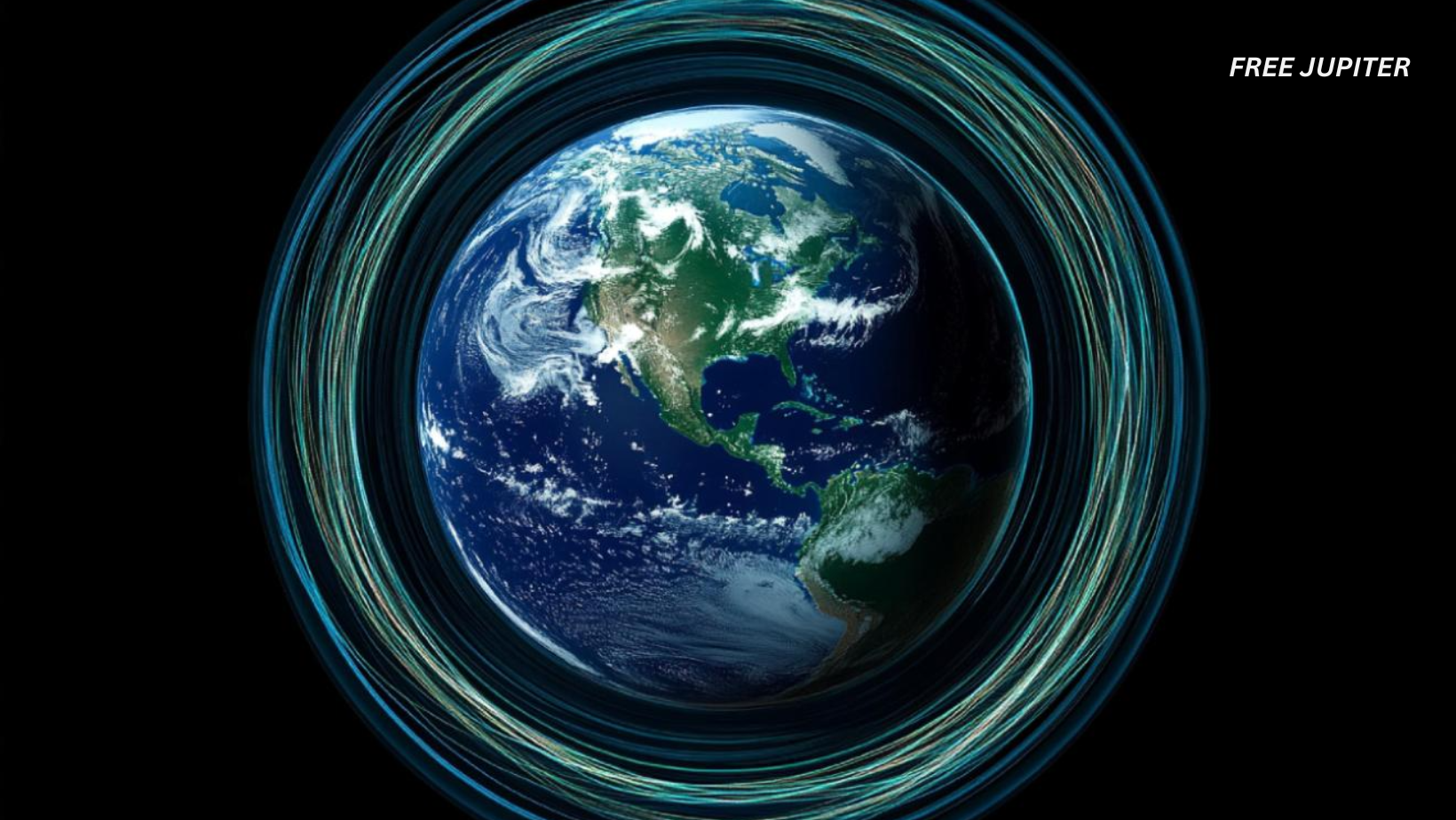Hold on to your clocks—Earth might be on the verge of completing the fastest spin of its life. And if that sentence sounds more like sci-fi than science, you’re not alone. Scientists themselves are scratching their heads. Sometime around July 9, July 22, or August 5, our planet could break its own record for the shortest day ever measured. Not metaphorically—the actual time it takes for Earth to do one full rotation might shrink more than it ever has since we began tracking it.
And the weird part? No one knows why this is happening.
Time Flies—Literally
Let’s take a step back. A standard day on Earth lasts 24 hours—or 86,400 seconds if you prefer to get precise. But here’s the twist: Earth doesn’t always rotate at the exact same speed. Some days are a little longer, and some are a tad shorter. We’re talking milliseconds of difference here, the kind of thing you’d never notice while binge-watching your favorite show or scrolling through cat videos.
But atomic clocks do notice.
Thanks to these hyper-precise clocks, scientists can measure the “Length of Day” (LOD) down to fractions of milliseconds. This is how they discovered that Earth’s rotation has been quietly breaking records since 2020. That year, the shortest recorded day was 1.05 milliseconds shorter than 24 hours. In 2022, July 5 took the crown, coming in at -1.66 milliseconds.
Now, scientists are bracing for another potential record-breaker in 2025. Why those specific dates—July 9, 22, or August 5? Because the Moon will be positioned farthest from the equator on those days. That matters more than you’d think.
Blame It On the Moon—Or Maybe Not?
Graham Jones, an astrophysicist who writes for timeanddate.com, points out that the Moon’s distance from Earth’s equator can subtly nudge our planet’s rotational speed. When the Moon moves north or south of the equator, it messes with the gravitational balance, causing Earth to spin ever so slightly faster.
Still, that doesn’t fully explain why this sudden speed-up is happening now—and so frequently. Every year since 2020 has brought a new record or near-record. Is something more dramatic happening under our feet?
Dr. Leonid Zotov, a specialist in Earth’s rotation at the Moscow Institute of Electronics and Mathematics, says even advanced models that track ocean currents and atmospheric pressure can’t explain this new burst of speed. “The cause of this acceleration is not explained,” he told timeanddate.com. “Most scientists believe it is something inside the Earth.”
Translation: We might be dealing with mysterious movements in Earth’s molten core, crust shifts, or seismic events that we don’t fully understand yet. In essence, Earth is behaving like a fidgety toddler who suddenly started sprinting after years of slow waddling—and nobody knows what triggered the sugar rush.
Read more: James Webb Just Found a Brand-New Type of Climate on Pluto—Unlike Anything We’ve Seen Before
A Long-Term Slowdown—With a Short-Term Twist
Ironically, over the long stretch of cosmic time, Earth is actually slowing down. Around 4.5 billion years ago, a full day lasted only 3 to 6 hours. That’s right—sunrise to sunset was over in what we now consider half a workday. The culprit behind the slowdown? Our faithful companion, the Moon.
The Moon creates tides by tugging on Earth’s oceans. This creates drag—basically like pulling on the brakes of a spinning wheel. Over time, this drag gradually reduces Earth’s rotation speed. Meanwhile, the Moon steals a bit of that rotational energy and uses it to spiral farther away from Earth. Right now, it’s drifting away at about 1.49 inches (3.78 centimeters) per year. That’s roughly the rate your fingernails grow—tiny, but relentless.
Earth and Moon’s Slow-Motion Tango
This tidal tug-of-war leads to an interesting future possibility. If Earth keeps slowing down and the Moon keeps drifting away, one day both could become tidally locked. That means the same side of Earth would always face the Moon—just like we always see the same side of the Moon from Earth. The Moon would stop “rising” and “setting” as we know it and would simply hang in one part of the sky for half the planet.
Sound eerie? Maybe. But it’s not happening anytime soon. Astronomers estimate that this synchronization will take about 50 billion years. That’s five times longer than Earth has even existed—and long after the Sun is expected to swell into a red giant and fry our planet to a crisp (or consume it entirely).
In other words, it’s fascinating, but not urgent.
Read more: Astrologers Say This Zodiac Sign Is Becoming The Most Powerful Version Of Themselves
So… Should We Be Concerned?
Not really. A few milliseconds shaved off your day won’t make your lunch shorter or your coffee colder. But the implications do matter for precision technology. Systems like GPS, satellites, and global communications rely on ultra-accurate timekeeping. A sudden change in Earth’s spin—even just a few milliseconds—can throw off calculations if engineers aren’t ready for it.
That said, the idea that Earth might be spinning faster than ever recorded is enough to keep scientists watching closely. It’s one of those rare moments where our planet surprises even the people who study it for a living.
And while we might not feel the difference, it’s humbling to remember that Earth is not just a static rock floating in space—it’s a lively, spinning, shifting, vibrating ball of complex systems we’re still learning to understand.
So next time you feel like the day just flew by, maybe it actually did.
Why the Shortest Day of Your Life Could Happen This Summer — Explained
Science journalist Margherita Bassi unpacks a fascinating and slightly bizarre reality: Earth is spinning faster than it used to—and July 2025 might bring the quickest day we’ve ever experienced.
⏱️ What’s Happening?
Earth usually takes 24 hours to complete one full spin. But lately, it’s been racing against its own clock. Using atomic clocks and incredibly sensitive time-tracking instruments, scientists have detected that some days are slightly shorter—by just a few milliseconds.
According to Bassi, this summer could feature the shortest day in recorded history on one of three dates: July 9, July 22, or August 5. These dates are predicted based on astronomical patterns, particularly the Moon’s position in relation to Earth’s equator.
🌕 Why Those Specific Days?
It turns out the Moon plays a more active role in Earth’s rotational behavior than you might think. When the Moon drifts far north or south of the equator, it affects Earth’s spin ever so slightly. On the listed dates, the Moon’s orbit will be at those extreme angles, increasing the chances that Earth might break its own speed record.
Gizmodo’s article highlights how these minuscule changes are measured using what’s called Length of Day (LOD)—the actual time Earth takes to complete one full rotation. If Earth spins just 1.7 milliseconds faster than usual, that counts as a new record. Doesn’t sound like much, but for scientists, this is cosmic gold.
🧠 The Big Mystery
Bassi also emphasizes a key point: no one really knows why this acceleration is happening. While tides and the Moon’s gravitational pull can account for some natural variation, this consistent increase in spin speed since 2020 has baffled scientists. Models that account for ocean currents, wind, or even seasonal shifts just don’t explain it fully.
That opens the door to some intriguing possibilities—like changes deep within Earth’s liquid outer core, which could be influencing the rotation from the inside out.
Read more: Signs That Someone Isn’t as Smart as They Think They Are—Backed by Science
⏳ Does This Mean Anything for Us?
Practically speaking, these millisecond shifts don’t affect our daily lives. You won’t be late for work or miss your train because the Earth shaved off a blink of time. But for satellites, GPS systems, and high-precision technologies, even a tiny shift can throw things out of sync.
Gizmodo’s tone, while light and entertaining, underscores how important this discovery could be for how we understand planetary behavior. It’s also a fun reminder that Earth is not a perfectly steady spinning top—it has quirks, it wobbles, and occasionally, it speeds up without warning.










